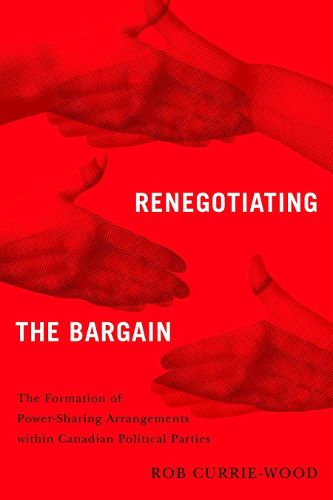Readings Newsletter
Become a Readings Member to make your shopping experience even easier.
Sign in or sign up for free!
You’re not far away from qualifying for FREE standard shipping within Australia
You’ve qualified for FREE standard shipping within Australia
The cart is loading…






The franchise bargain that once divided Canadian political parties into separate spheres of authority - with members on the ground and elites at the centre - has been displaced. Renegotiating the Bargain explains why parties have reformed their internal decision-making structures and shows how the new arrangement operates. Rob Currie-Wood draws on in-depth interviews with current and former party officials, party governance documents, and election financing reports to trace organizational change within Canadian political parties since the end of the twentieth century. Rank-and-file members now possess the same participatory rights as long-time activists and elected officials, but the central apparatus now also has capacity to regulate membership participation in key areas of policy-making, leadership selection, candidate nominations, and campaigning. Renegotiating the Bargain demonstrates that parties remain meaningful sites of civic participation in Canada's democratic life. Its findings reveal not only the evolution of power-sharing arrangements within parties but also how party democracy works.
$9.00 standard shipping within Australia
FREE standard shipping within Australia for orders over $100.00
Express & International shipping calculated at checkout
The franchise bargain that once divided Canadian political parties into separate spheres of authority - with members on the ground and elites at the centre - has been displaced. Renegotiating the Bargain explains why parties have reformed their internal decision-making structures and shows how the new arrangement operates. Rob Currie-Wood draws on in-depth interviews with current and former party officials, party governance documents, and election financing reports to trace organizational change within Canadian political parties since the end of the twentieth century. Rank-and-file members now possess the same participatory rights as long-time activists and elected officials, but the central apparatus now also has capacity to regulate membership participation in key areas of policy-making, leadership selection, candidate nominations, and campaigning. Renegotiating the Bargain demonstrates that parties remain meaningful sites of civic participation in Canada's democratic life. Its findings reveal not only the evolution of power-sharing arrangements within parties but also how party democracy works.